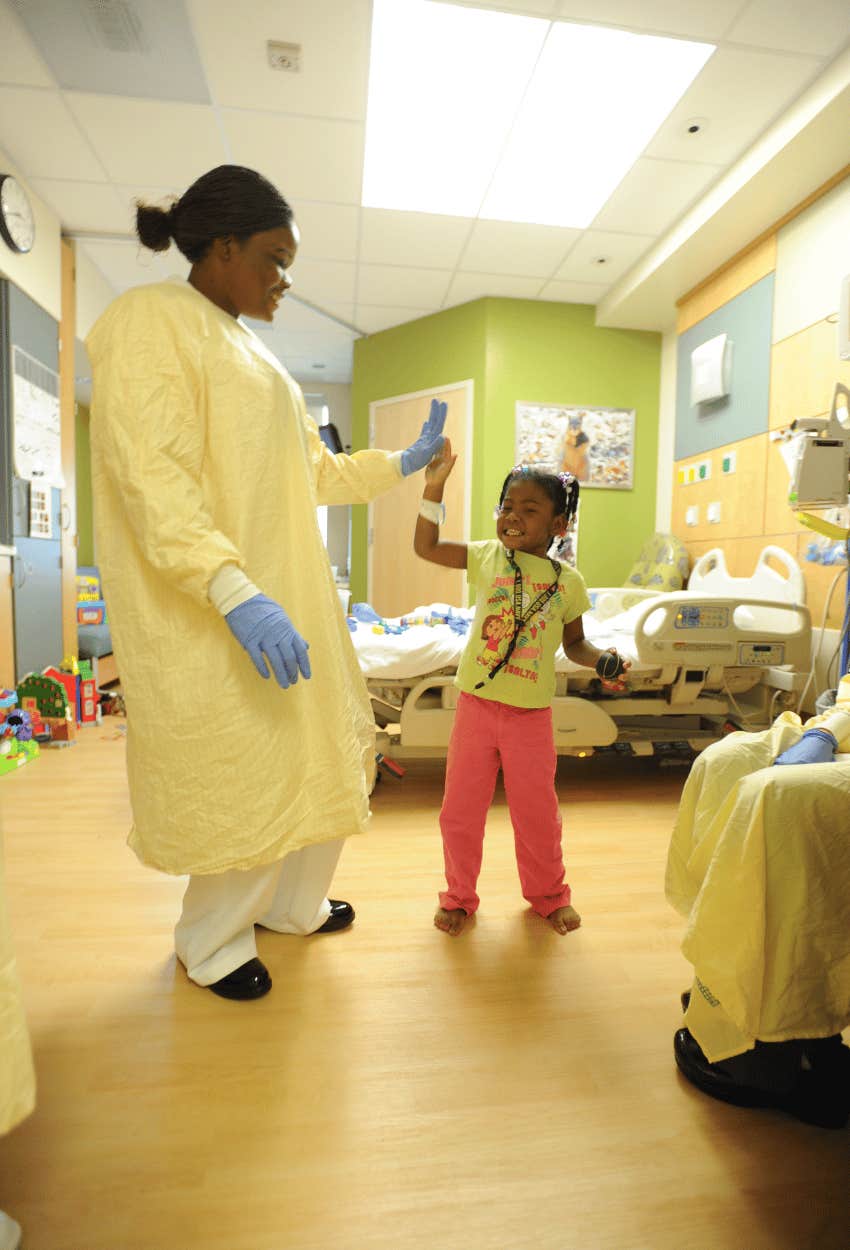Nurse Says Only Hospital Staff Who Voted For Trump Should Treat Patients With Measles
Vaccines or values? The ethical dilemma that healthcare professionals are dealing with.
 LightField Studios | Shutterstock
LightField Studios | Shutterstock Healthcare has become increasingly politicized, with many viewing policies through the lens of political allegiance rather than public health needs. For instance, the anti-vaccination movement, which gained traction among some conservative circles, fueled debates about the role of government in healthcare and the responsibility of individuals to protect public health.
In today's polarized political climate, the intersection of personal beliefs and professional responsibilities can sometimes lead to controversial statements and actions, even within fields like healthcare. That was certainly the case for one nurse who took to Reddit to argue that the only hospital staff that should suffer through the current measles outbreak are those that voted for Trump.
A nurse insisted that only hospital staff who voted for Trump should treat patients with measles.
A nurse took to Reddit to vent his frustrations about the current state of medicine in the U.S., specifically the anti-vaccine sentiment that has become a talking point for many Trump supporters. He wrote, "If you voted for this, you can deal with the measles encephalitis patients first," referring to the nurses who voted for President Donald Trump.
While he was using his post as a way to express his frustration at the fact that hospitals are becoming overwhelmed with patients that should otherwise never even gotten sick in the first place, the truth is, everyone deserves care regardless of their political beliefs.
 sturti | Canva Pro
sturti | Canva Pro
One commenter reminisced about their time working during the COVID-19 pandemic treating an anti-vaxxer woman. "Well with a lot of compassion and patient education, and a long hospital admission, her first ever vaccine was the COVID vaccine." They added, "Sometimes you just gotta be the bigger person, provide the best patient education you can, and save your frustrations for screaming in the med room."
Natural selection plays a significant role in shaping the ideological stance of some individuals who are opposed to vaccinations.
Some individuals may wrongly apply this concept to justify their beliefs, thinking that allowing diseases like measles to spread might help "strengthen" the immune system or that survival of the fittest should determine who gets sick and who survives.
People who reject the theory of evolution might also reject the scientific consensus on vaccines, which can contribute to vaccine hesitancy or refusal. This often becomes an issue when discussing public health measures like vaccination, as some individuals may not trust the science behind vaccines, in part due to their rejection of evolution.
According to the CDC, there have been 378 confirmed cases of measles in 2025, and we are only three months into the year. For comparison, 284 confirmed cases of measles were reported during the entirety of 2024.
However, science isn't about political beliefs or ideological stances; it is about evidence and consensus. The overwhelming scientific community supports vaccines, which have been proven to be one of the most effective tools in preventing the spread of infectious diseases, including measles.
If anything, times of crisis should encourage unity among healthcare professionals, not division.
 12019 | Canva Pro
12019 | Canva Pro
The debate over whether healthcare workers should let their political beliefs, like being anti-vaccination, influence their treatment of patients is controversial. On one hand, some argue that healthcare professionals have the right to hold personal views without it affecting their ability to deliver quality care. After all, even those with controversial beliefs might be skilled and compassionate practitioners.
On the other hand, critics say patient safety and public health should always come first. They argue that healthcare workers, especially in the face of preventable diseases like measles, must follow science and medical guidelines, no exceptions. This clash of personal rights versus public responsibility raises tough questions about where the line should be drawn in healthcare.
Healthcare decisions should be made based on the medical needs of the patient, supported by the best available evidence, not influenced by personal or political beliefs. When healthcare professionals allow politics to influence patient care, it can lead to unfair treatment, harm, and a loss of trust in the healthcare system. The main priority should always be the health and well-being of the individual receiving care.
Sylvia Ojeda is an author with a decade of experience writing novels and screenplays. She covers self-help, relationships, culture, and human interest topics.

